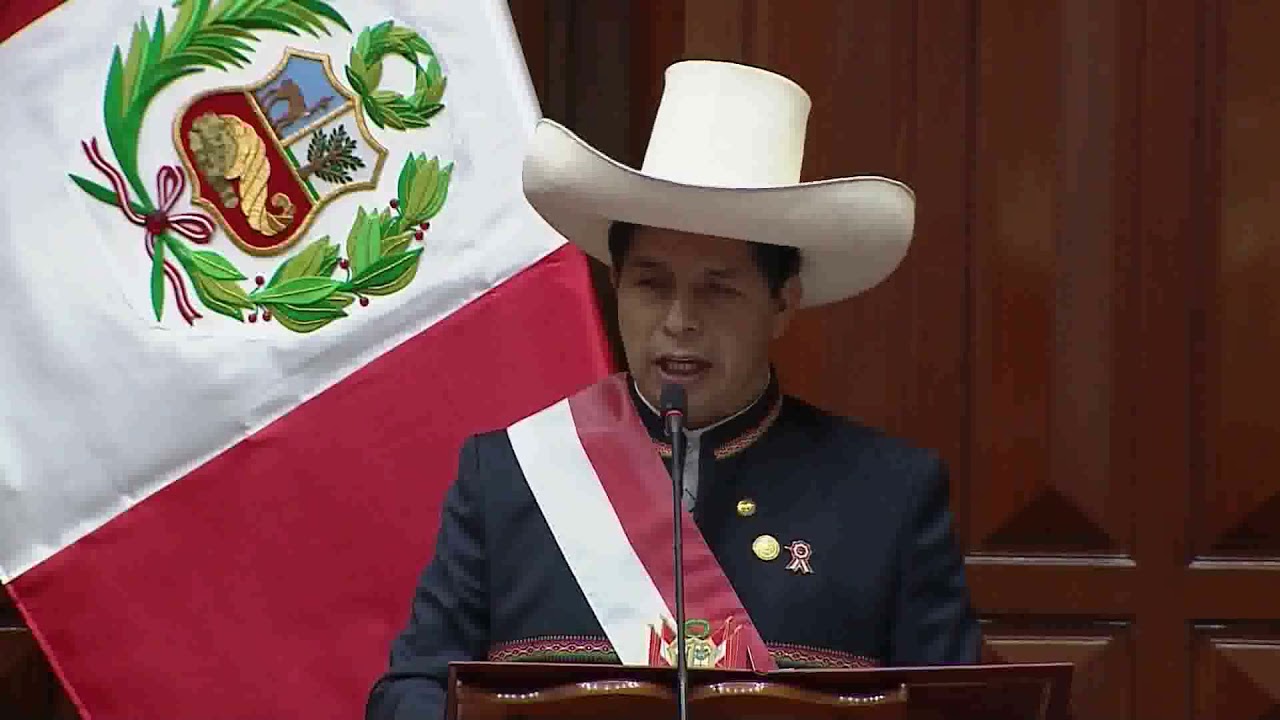RIO DE JANEIRO, BRAZIL – Pedro Castillo has completed his first 100 days as president of Peru, a period plagued by turbulences, silences, indecisions, ambiguities, and countermarches accompanied by a voracious opposition that does not seem to accept the electoral result and whose extremes are calling for the president’s dismissal.
Since he was sworn in as head of state on July 28, the former teacher and union leader has had no respite, almost always in the eye of the storm given the internal tensions of the different forces that make up his government and the external ones of the opposition, focused on demolishing his most questioned ministers.
Read also: Check out our coverage on Peru
With his prolonged silences, with hardly any contact with the press, and evident problems in transmitting his messages, Castillo has also encouraged the feeling that he has difficulty making decisions.

This sensation is being whipped up by opponents on the right and the extreme right, who question his electoral triumph and unabashedly wield the need for a “vacancy” (impeachment) with maneuvers in Congress that point in that direction. However, for the moment, they are far from having the necessary votes.
FROM DAY ONE
The “professor” had his first crisis when he appointed as prime minister the controversial congressman Guido Bellido, right-hand man of the Marxist Peru Libre party leader, Vladimir Cerron, a neurosurgeon politically trained in Cuba.
The unexpected appointment surprised Pedro Francke and Anibal Torres, the two most moderate and reassuring faces for business people and investors among Castillo’s allies, who initially declined to be sworn in as Economy and Justice ministers, respectively.
Bellido had to publicly disavow his previous attacks on both figures for them to accede to the position in a cabinet, very left-leaning and with hardly any women, which seemed to unravel even before starting.
THE CHANCELLOR
Barely 21 days passed when Castillo suffered the first casualty, after the publication of some old declarations of the Minister of Foreign Affairs, Héctor Béjar. They accused the Peruvian Navy of having initiated “terrorism” in Peru in the 70s.
The assertion was taken as a grave insult by the Navy – two former admirals are part of the parliamentary opposition – and the pressure led to the resignation of Béjar, an 85-year-old sociologist and former guerrilla.
In September, Castillo traveled to New York for the United Nations General Assembly, where he reiterated his commitment to the Constitution, foreign investment, and private property.
Bellido summoned the Camisea gas field consortium to renegotiate its contracts under takeover threat almost simultaneously and in the opposite line.
Castillo was slow to address the situation, amid the rise of the dollar, the fear of investors, and the efforts of the moderate sector of the government to mitigate damages, while Bellido and Cerrón continued to air the “expropriation” threat.
THE CHANGE OF COURSE
The straw that broke the camel’s back was the revelation that Bellido and Cerrón were pressuring the ruling party’s bench to demand the departure of the new Chancellor Óscar Maúrtua and campaign against Vice President Dina Boluarte, from the moderate wing of the government.
Only then did Castillo dismiss Bellido and six other ministers to reinforce his moderate position, which he left in the hands of Mirtha Vásquez, a human rights and environmental lawyer and recently former president of Congress.
With this move, Castillo also got rid of Íber Maraví, a minister who was about to be censured by Congress, which accused him of having unproven links with Shining Path terrorists during the internal armed conflict (1980-2000).
“ANTI-VACCINE “ADVISOR
When it seemed that he was on the right track, Castillo surprised by announcing with great fanfare the signing as advisor of the controversial former mayor of Lima, Ricardo Belmont, an old macho, xenophobic, homophobic, pandemic denier, and anti-vaccine man.
Belmont, who had once predicted that Castillo would end up “in jail or rich and fleeing the country”, never made his position official in the face of Vasquez’s opposition.
Meanwhile, the focus fell on Interior Minister Luis Barranzuela, reviled by the opposition for being a partner in the law firm defending Cerron in a case of alleged illegal financing of Peru Libre and for opposing the eradication of illicit coca leaf crops to promote legalization like the one in Bolivia.
FORBIDDEN PARTY
Barranzuela was forced to resign this week after he was discovered at a boisterous party organized at his house for “Halloween” when his portfolio had banned such gatherings as a preventive measure against Covid-19.
Despite the ups and downs, the Peruvian economy maintains its reasonable expectations for 2021, with a growth of 10%, one of the highest in Latin America, and the expectation of breaking its export record by reaching about 55 billion dollars.

